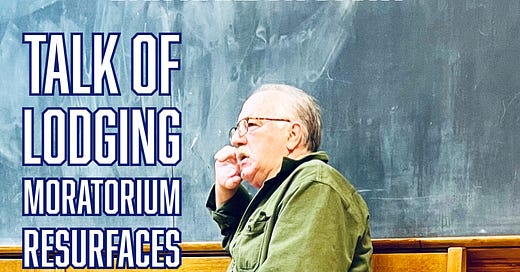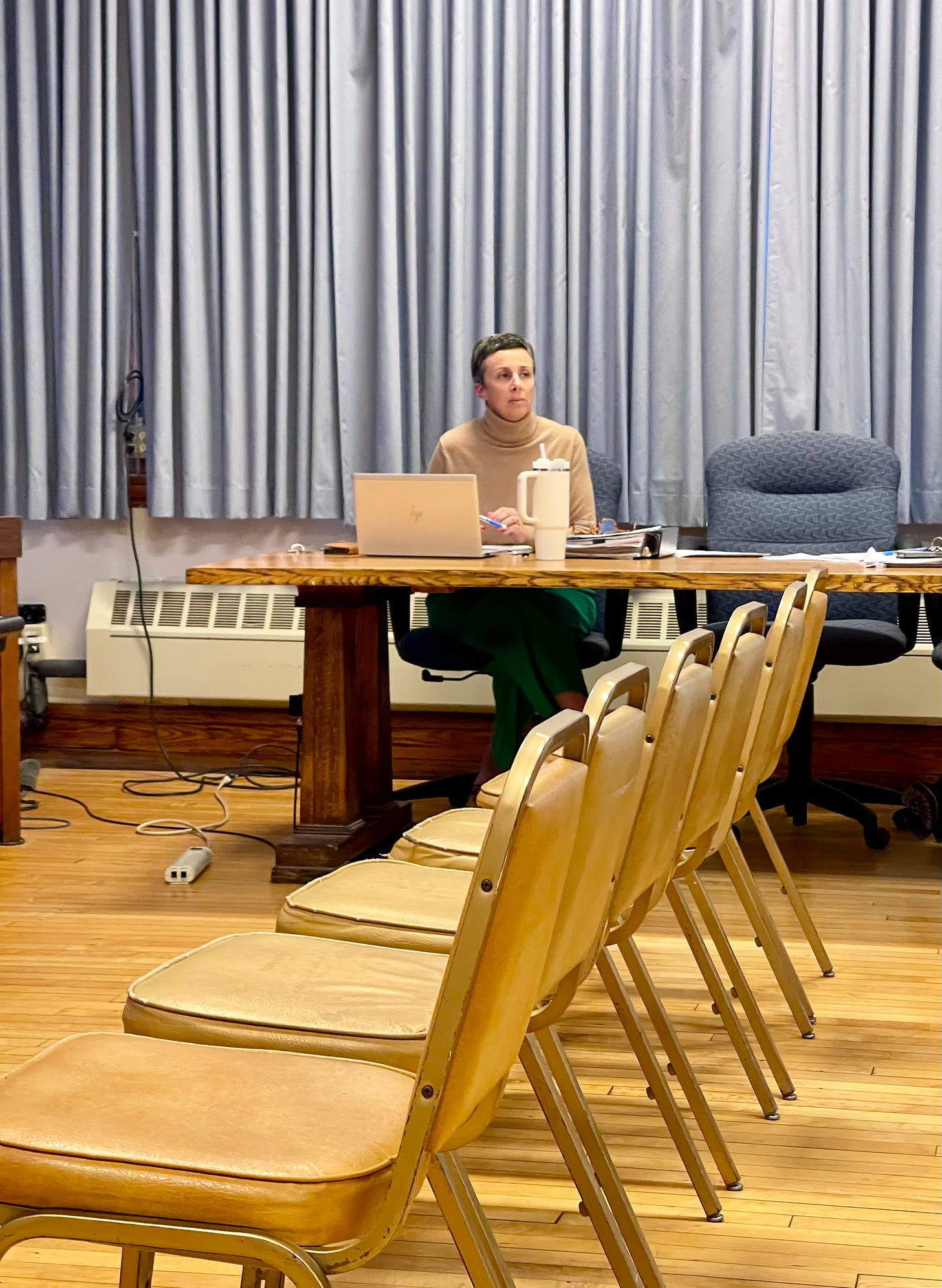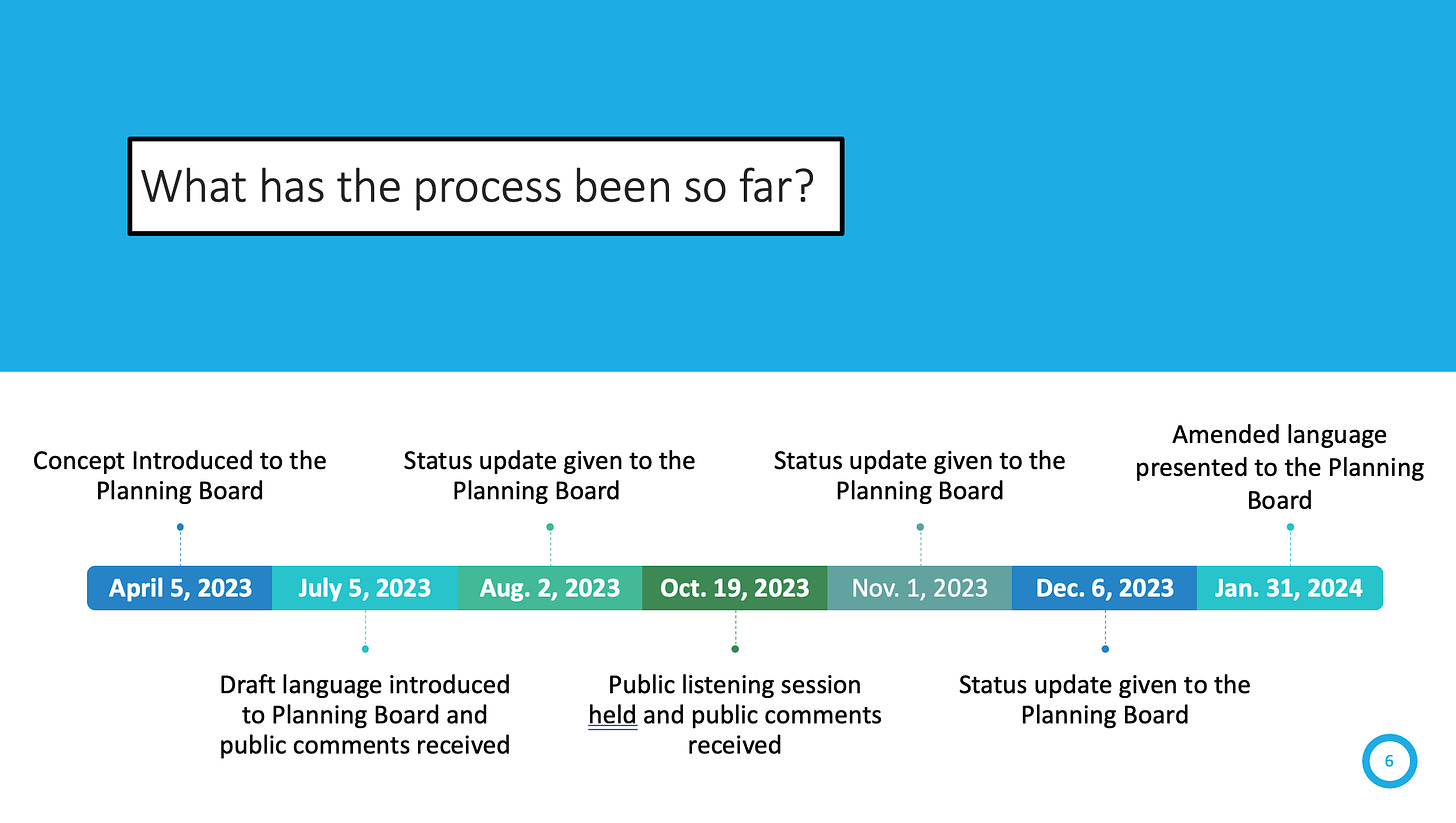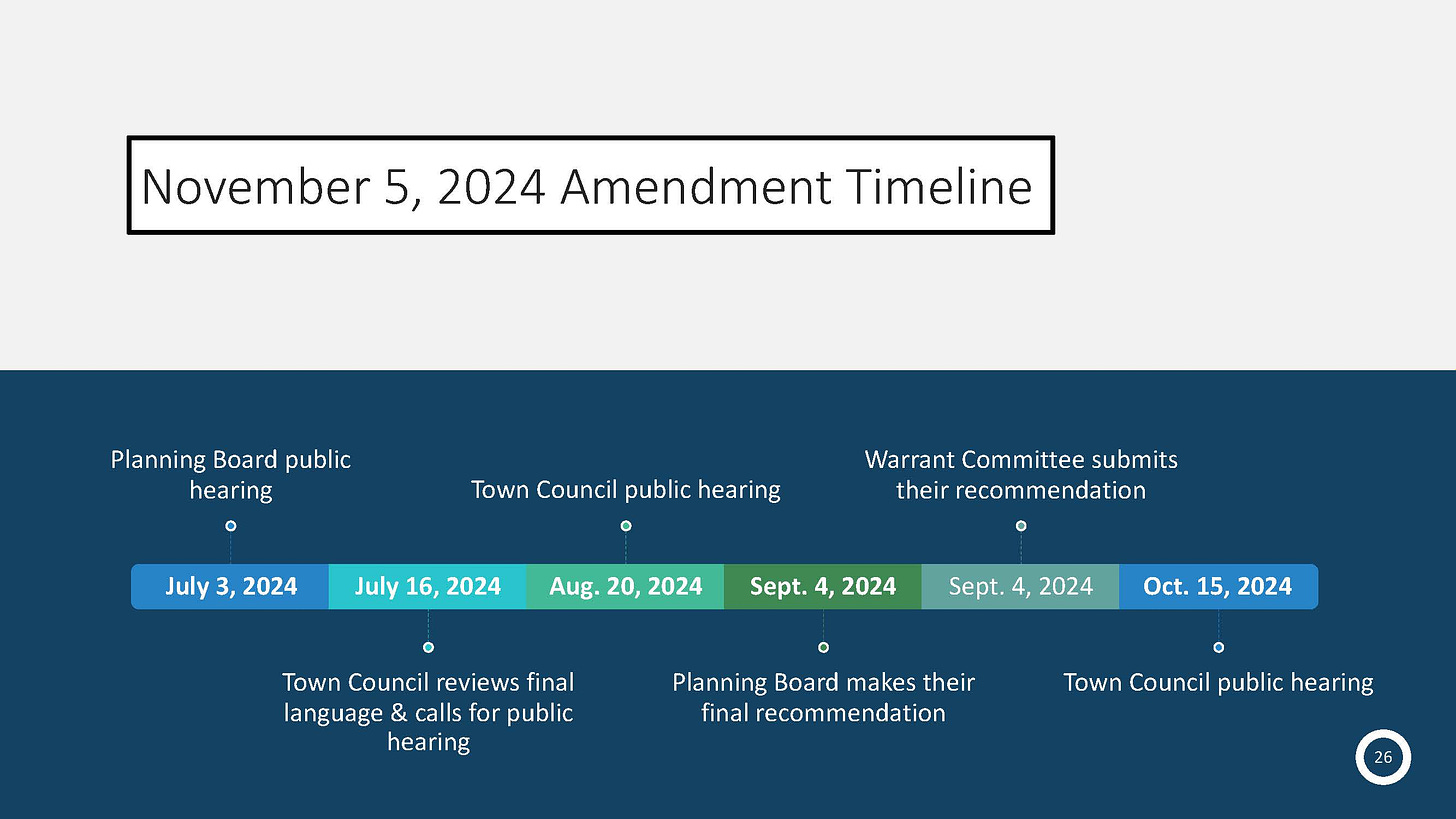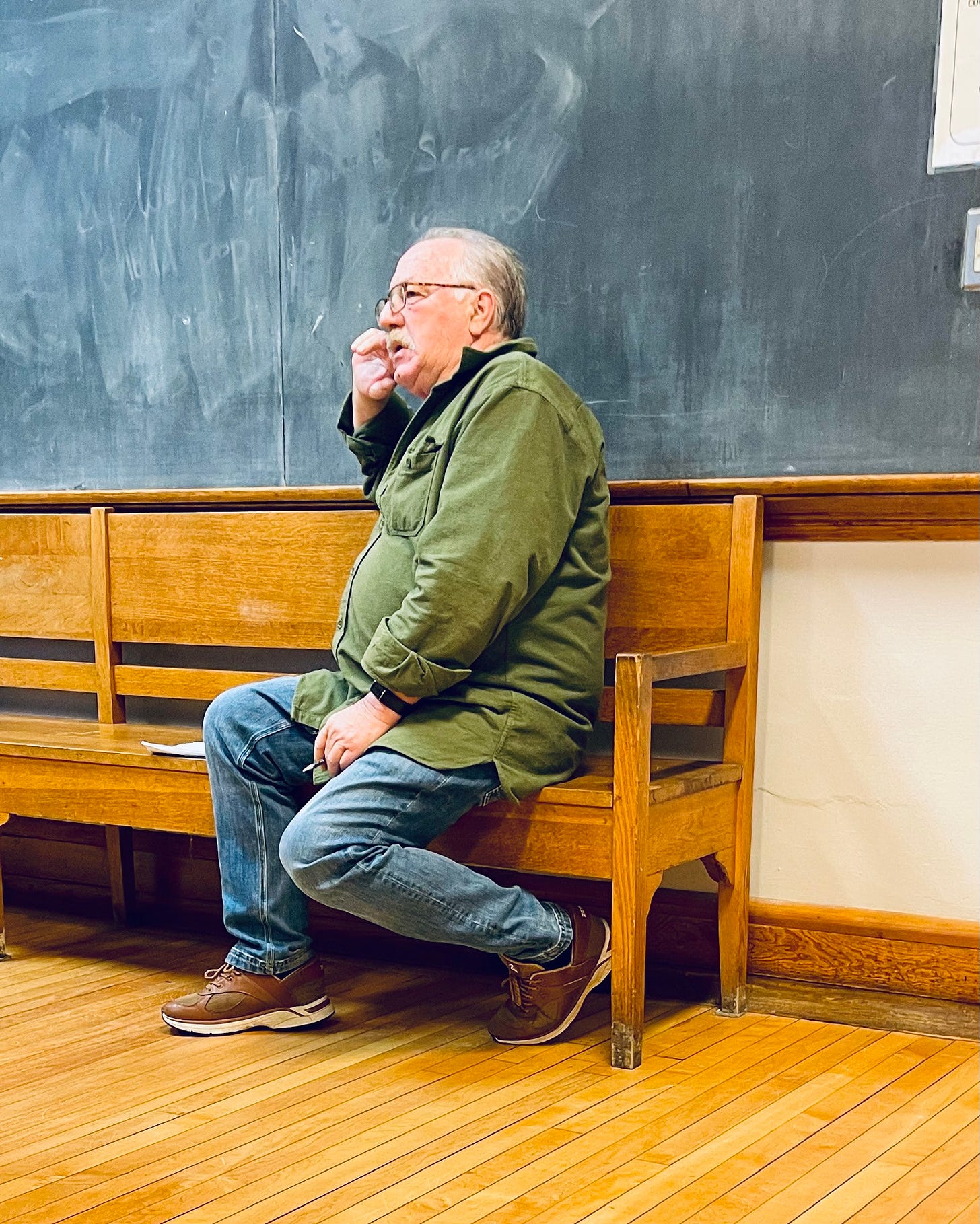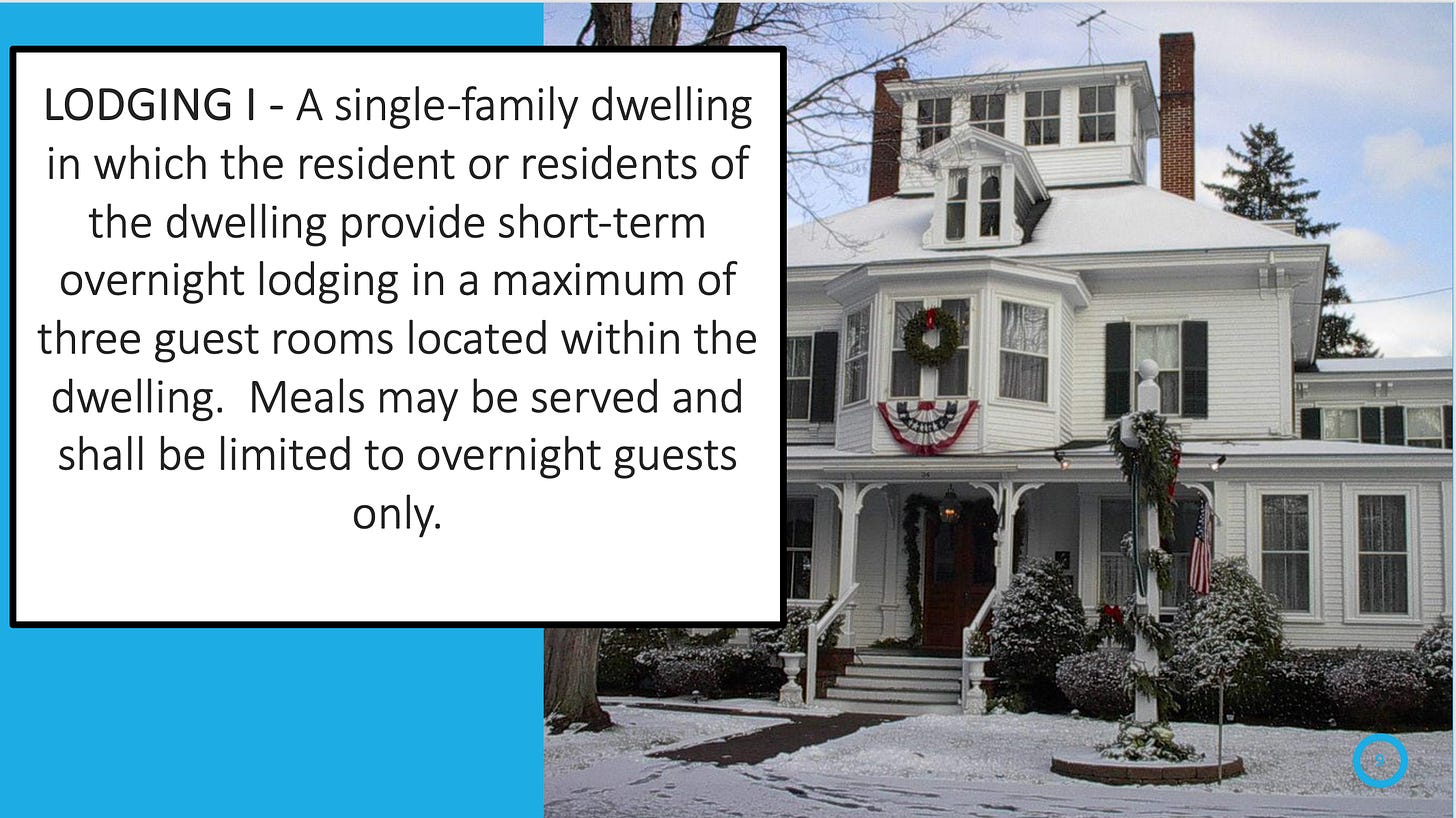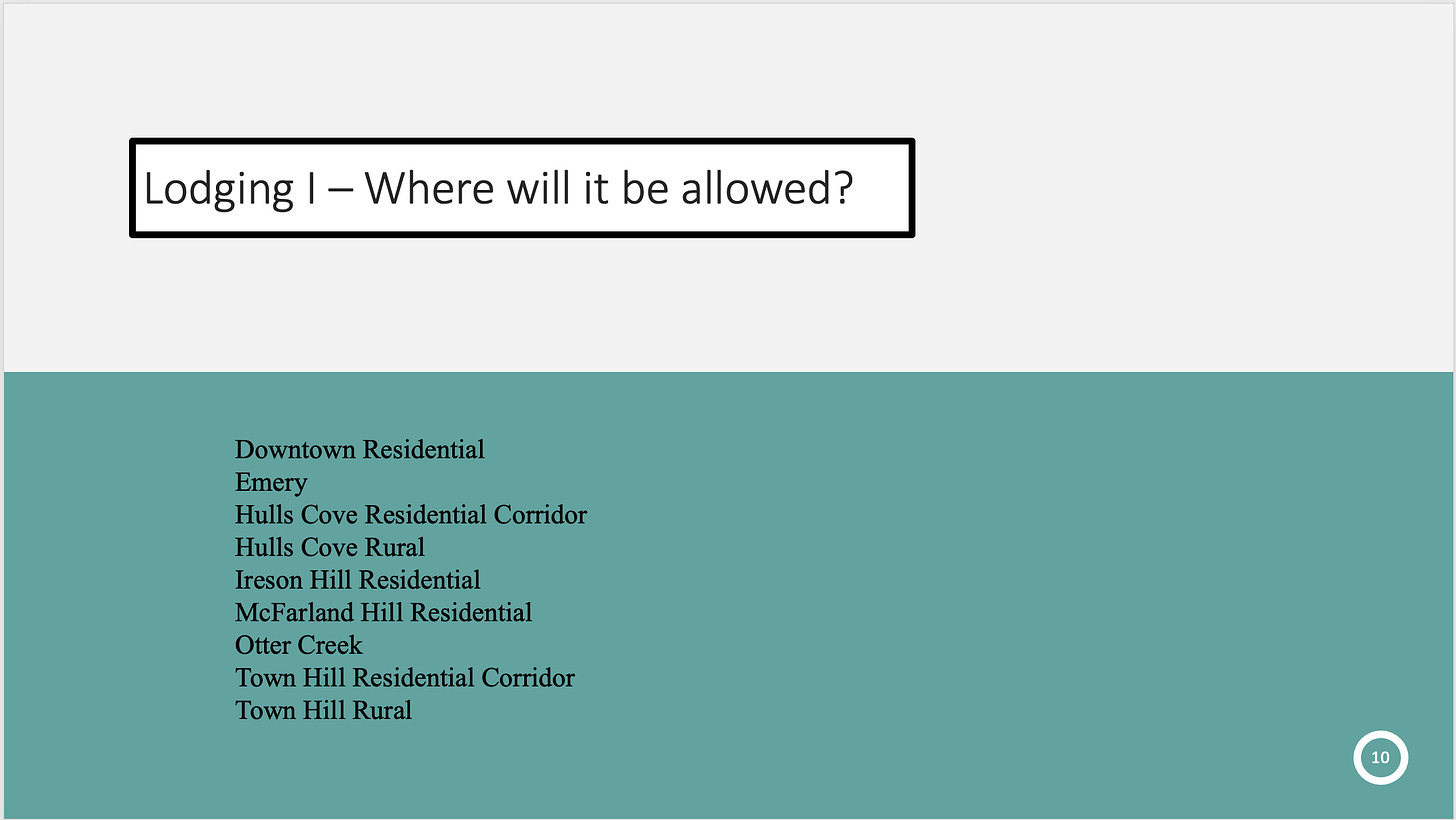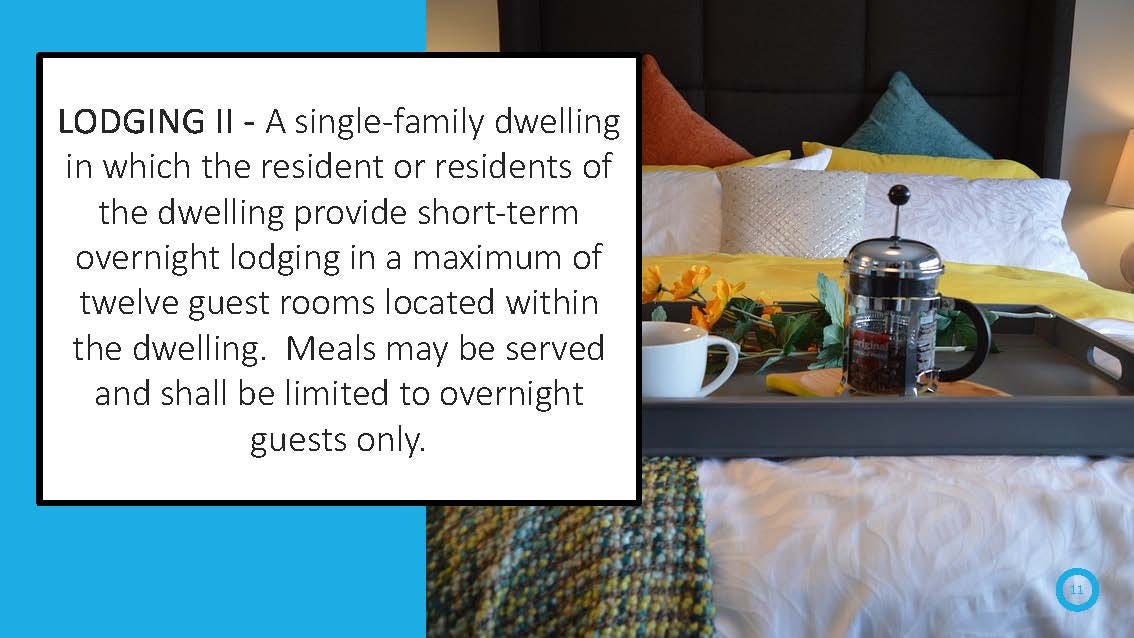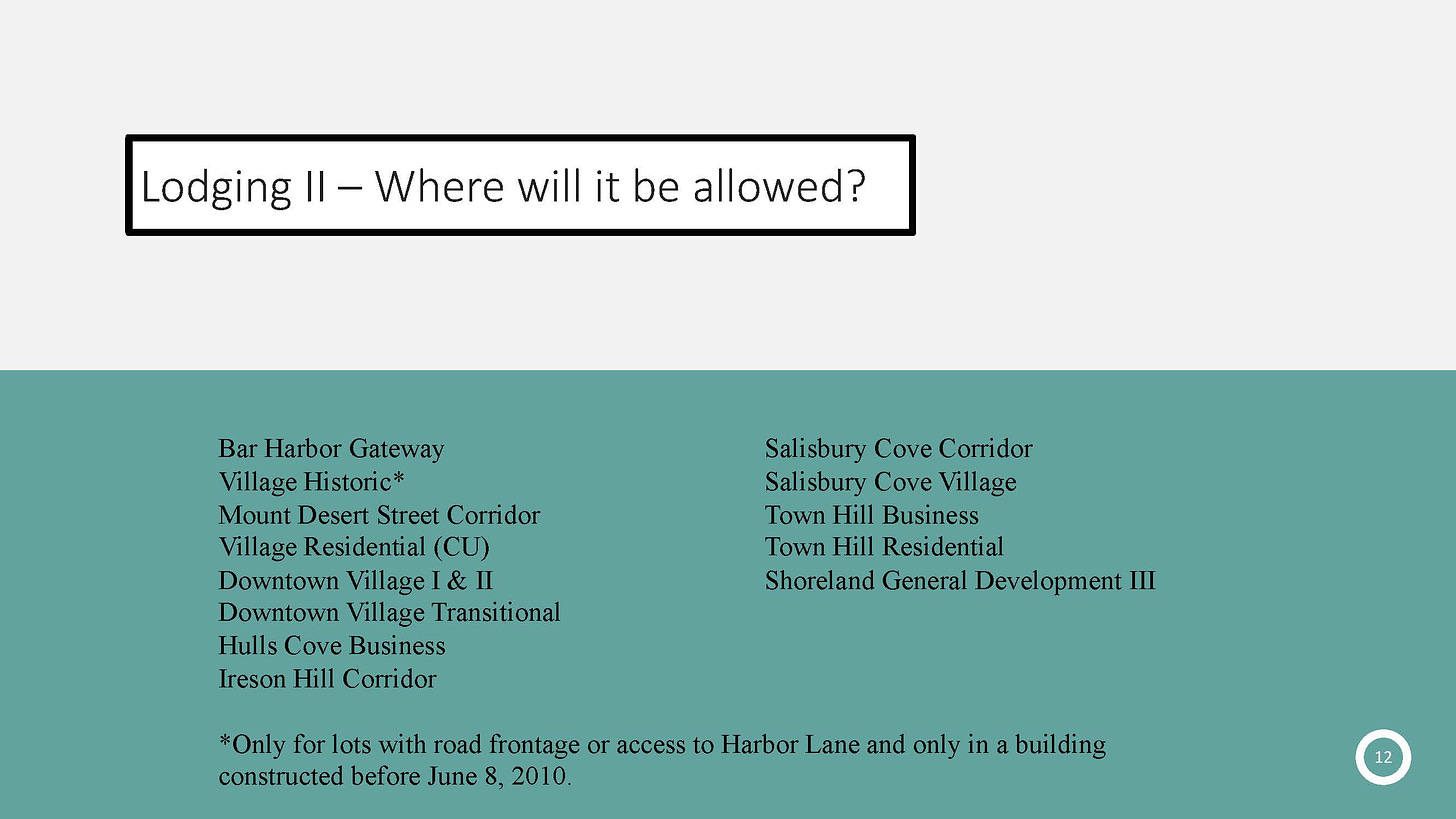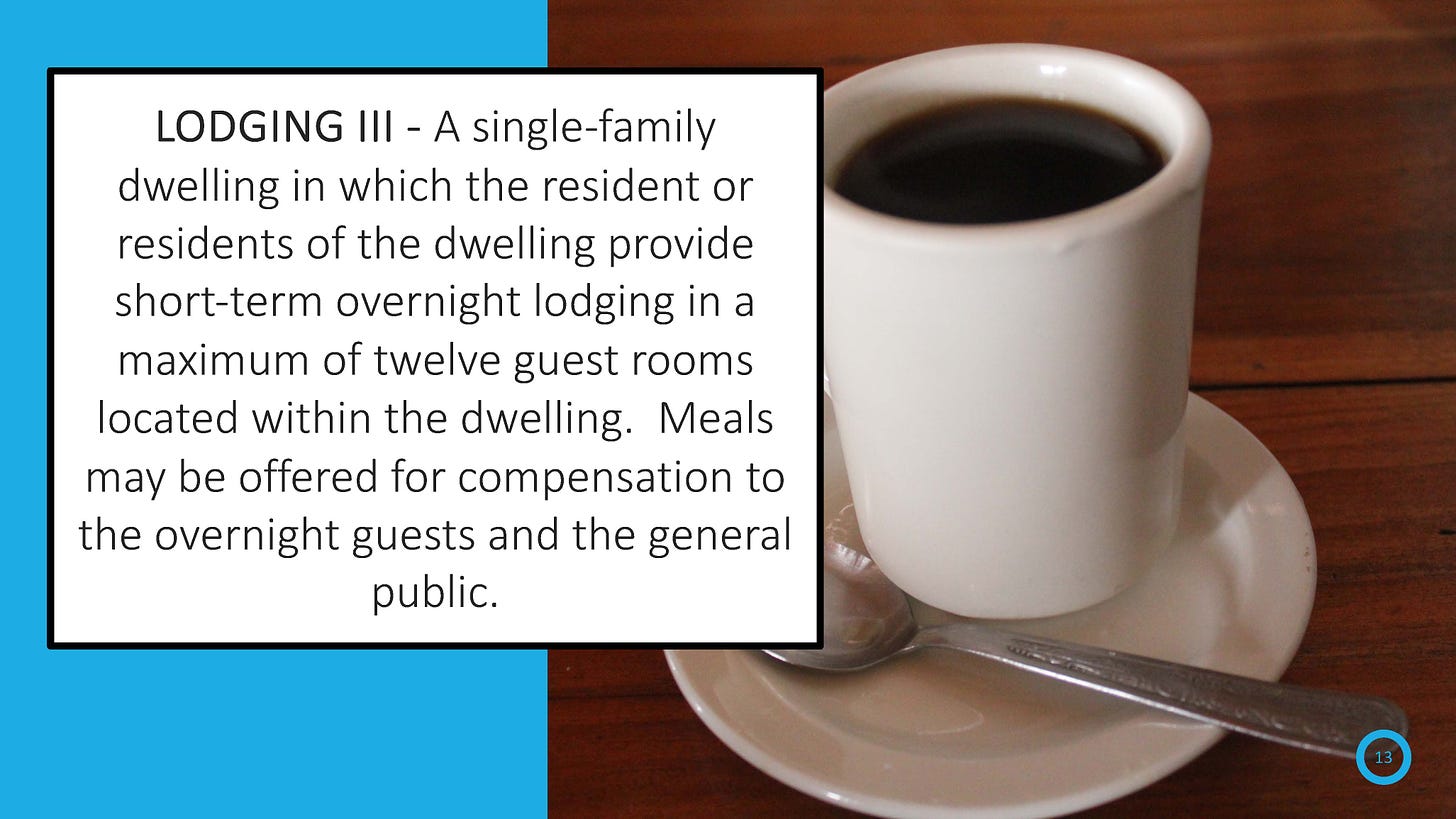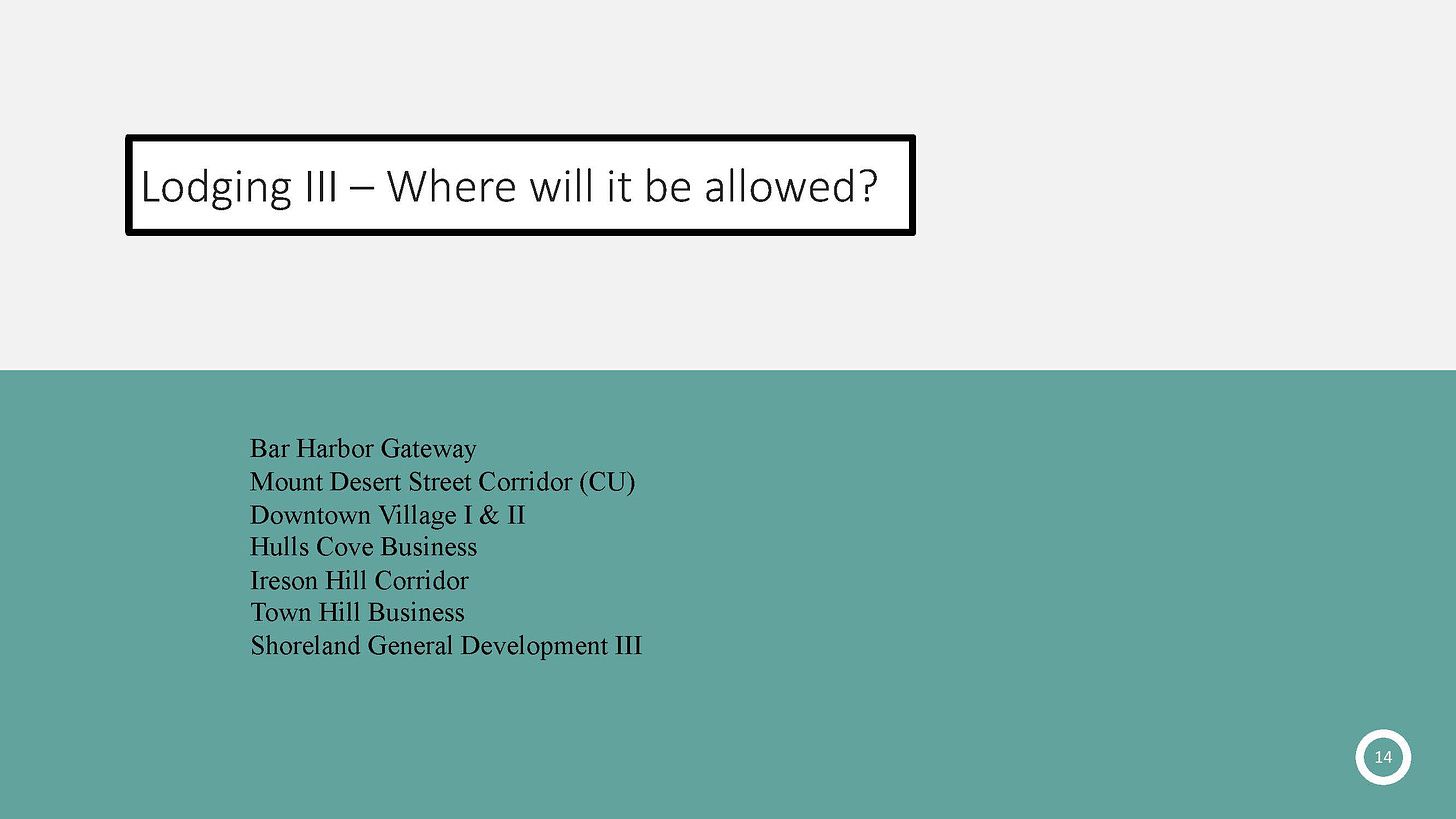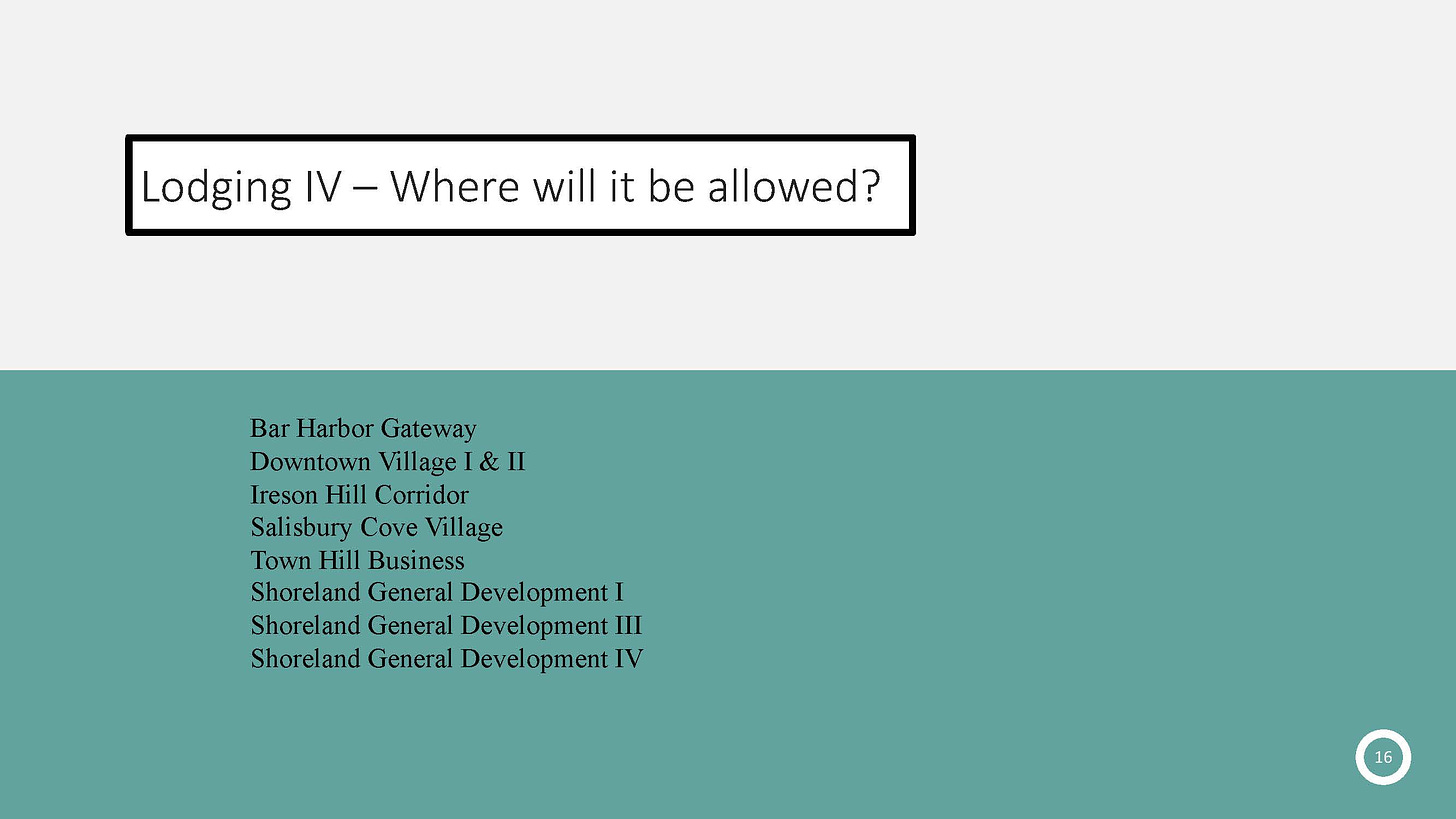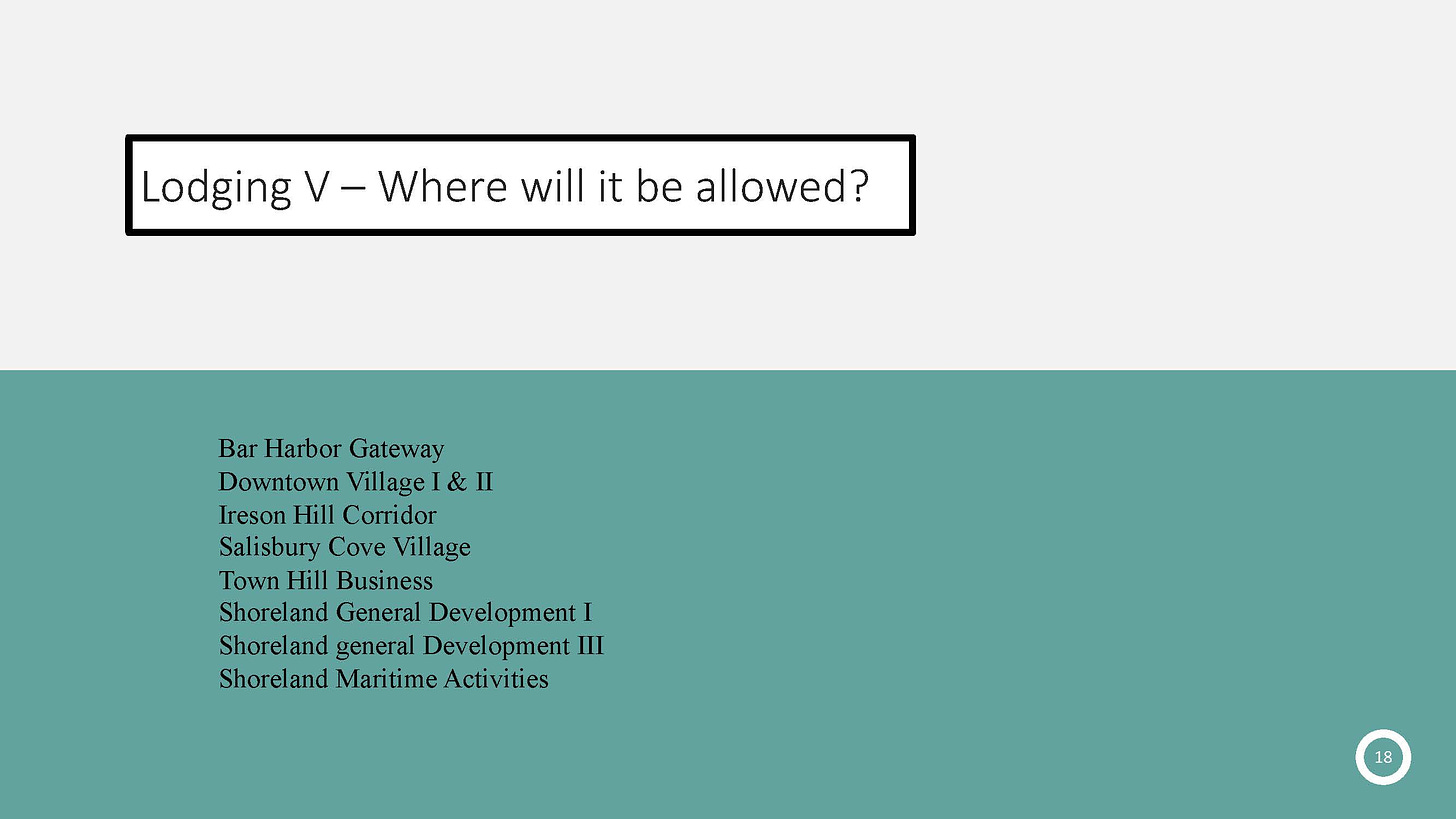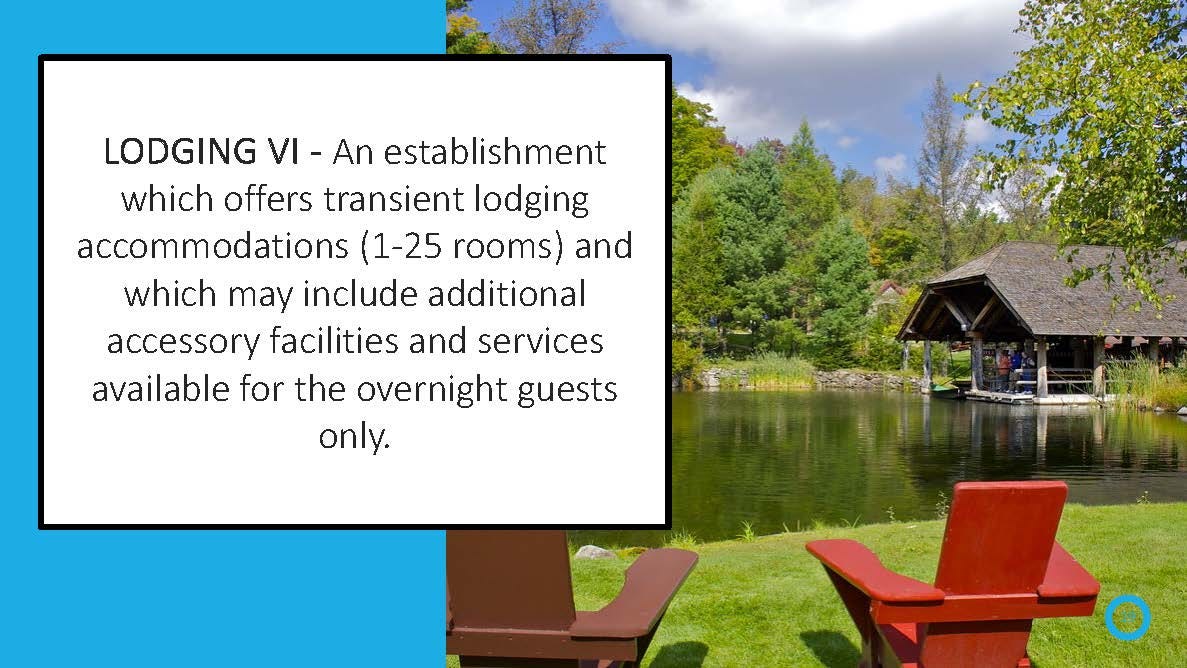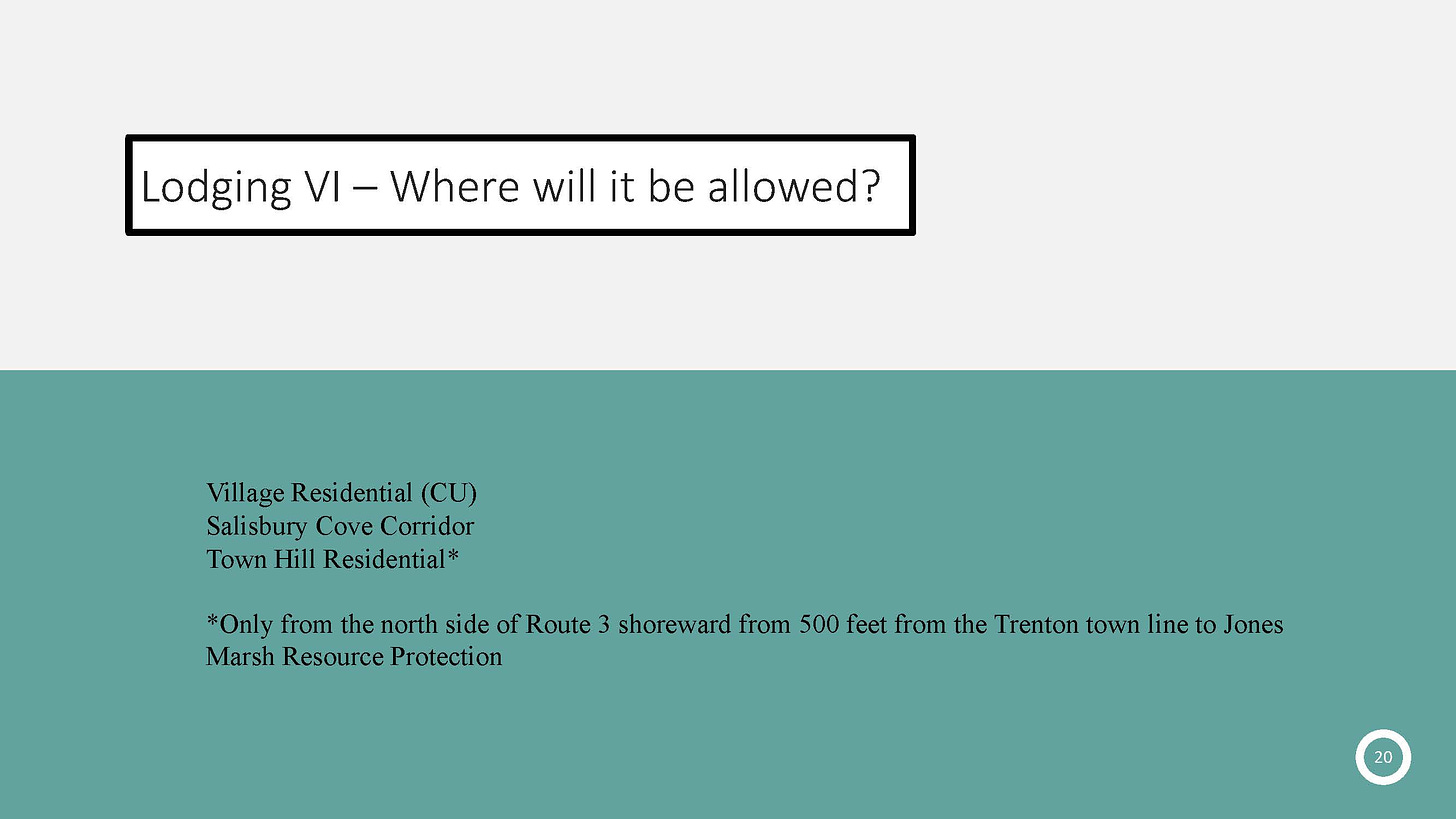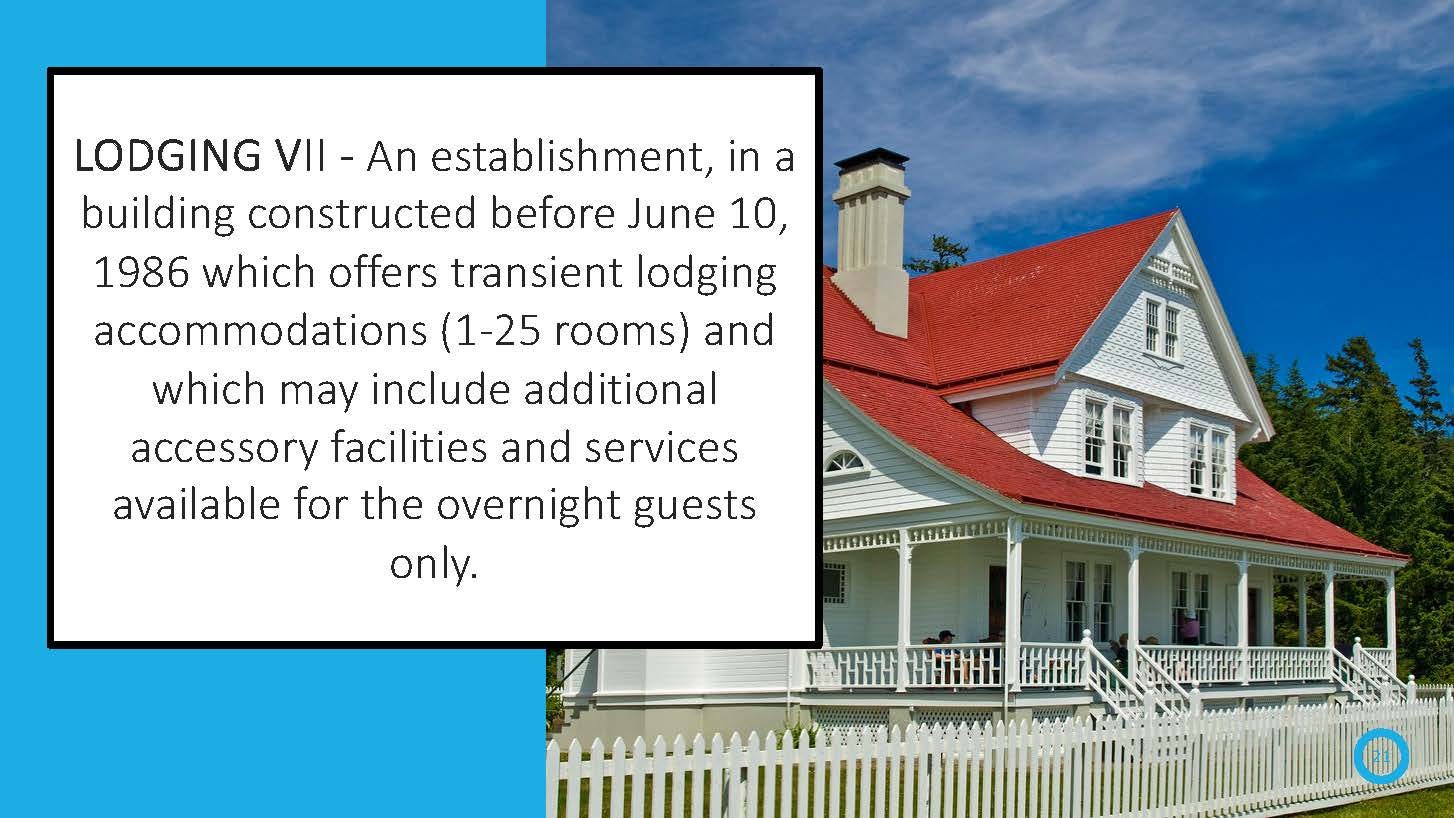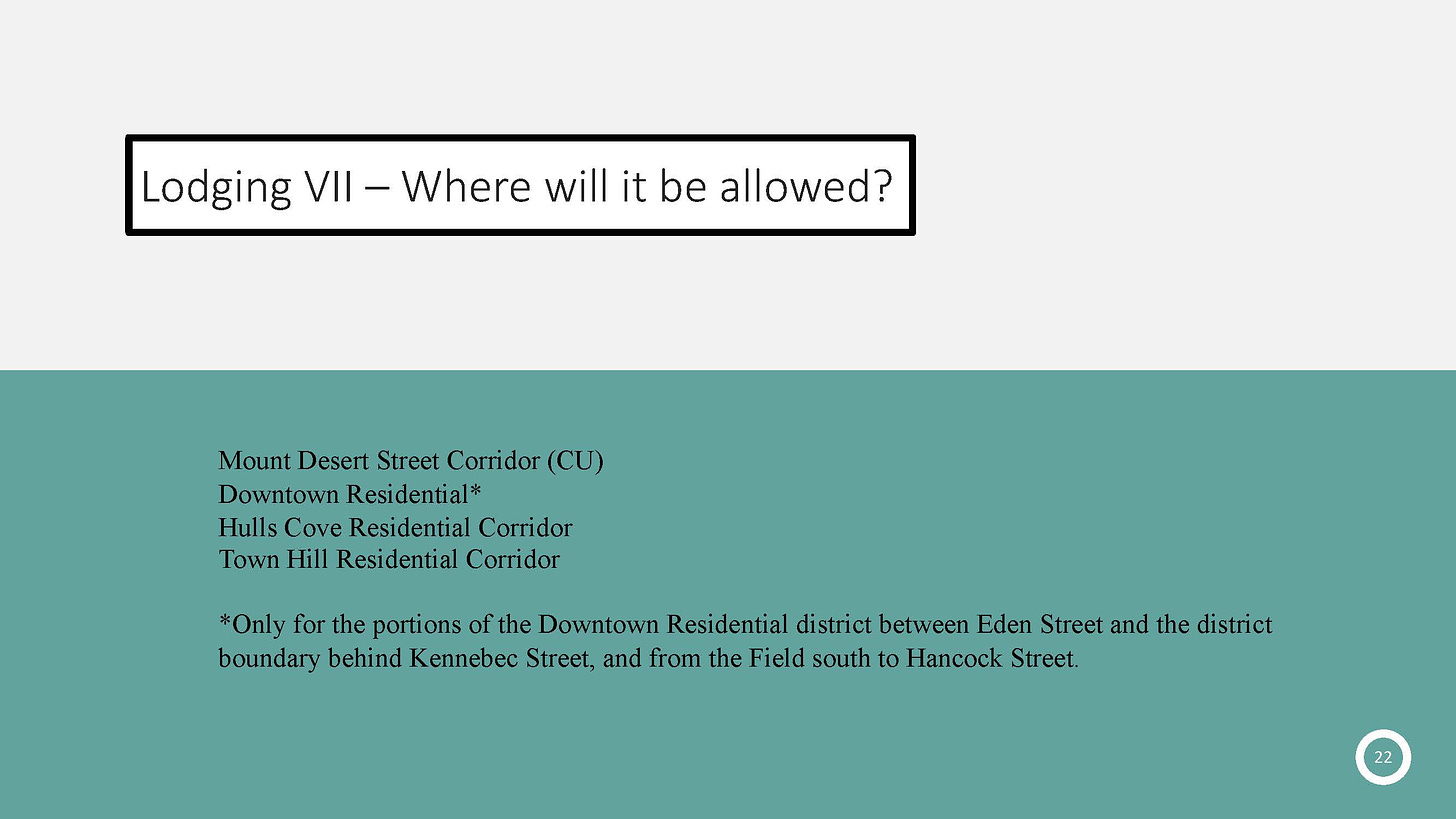Talk of Lodging Moratorium Resurfaces
Code Enforcement Officer Explains New Transient Accommodation Definitions
BAR HARBOR—A transient accommodations moratorium could be back. Or, at least, there might be some more talk about it.
At the Town Council’s April 2 meeting, Councilor Earl Brechlin referenced an email from Cara Ryan (resident and Appeals Board member) sent to the councilors about transient accommodation definitions and questioning if the town should think again about a moratorium (a moratorium can temporarily stops certain and specific types of development.
“Here we have something to correct a perceived problem in the community, i.e. hotels being built as B&Bs and what have you, and it’s ready to go,” Brechlin said of work that Code Enforcement Officer Angela Chamberlain has done to change the definitions in the town’s land use ordinance. Those potential changes would have to be approved by voters in November, at the earliest.
Brechlin said that while he is not generally in favor of moratoriums, “in this particular case, it warrants discussion.”
LODGING AND TRANSIENT ACCOMMODATIONS AND HOW THEY MIGHT CHANGE
When people visit Bar Harbor and stay overnight, they stay in what the town calls transient accommodations. Those include rooms in hotels and motels and bed and breakfasts. It also includes campsites and then also RV sites. Short-term rentals in houses are a different category than rooms rented in hotels, motels, and bed and breakfasts.
In the past five years, there have been approximately ten building permits dealing with transient accommodations.
Chamberlain held a listening session about potential changes to lodging definitions. There are currently 19 different uses with slight variations. Some require her approval, some require Bar Harbor Planning Board approval, but what requires what is not consistent. Parking standards are not consistent either. She went into the ordinance and tried to clean up the standards as well as define the lodging uses that aren’t currently defined.
Former Councilor David Bowden said, “I never like change, but simplifying things in this town is always better.”
It's not the first meeting or listening session she’s held about the changes.
"I've had a lot of people attend over and over and they may feel that this has been dragged out." She said, she'd rather take a long time to make a better document.
She proposed having seven lodging uses instead of those 19, labelling them lodging 1 through lodging 7. There will be a Planning Board hearing on the potential changes on July 3.
“I was really trying to get away from what I think of as a style of building,” Chamberlain said of the definitions and instead define them by number of rooms, whether meals are served, and other factors.
If the voters approve an ordinance, it will take 30 days to enact. Chamberlain and Planning Director Michele Gagnon said that they believe that if an application is in the town’s pipeline (before the town’s Planning Board, submitted to the code enforcement officer), it will likely be considered to have a form of vested rights and allowed.
PAST MORATORIUM DISCUSSION
After remarks from Councilor Matthew Hochman during the Council’s August 2023 meeting, a potential moratorium on transient accommodations received a lot of press. That discussion continued at a September 5 meeting.
In September, the town’s attorney Steven Wagner explained that the moratorium is “essentially a pause on development” and a pause on processing the applications for transient accommodations. To do that, the councilors would have to make certain findings: that the moratorium is necessary to stop a burden on public facilities and other aspects; that the existing comprehensive plan is inadequate. It was not passed or tabled, but sent to staff.
In October 2023, Hochman said that his reasoning for wanting to discuss a potential moratorium on transient accommodations (lodgings of multiple types) was to give the town a pause to work through different issues with the land use ordinance and the process. He said since then, thanks to the workshop with the Planning Board and the planning department’s and Planning Board’s work, he is more comfortable that the town is moving toward changes to the land use ordinance. He moved to not move the moratorium forward at that time. Council Chair Val Peacock agreed and added that the conversation about lodging types is also occurring in the creation of the Comprehensive Plan.
Council Vice Chair Gary Friedmann said he was voting similarly, but that both housing and tourism management were urgent issues. More recently, Councilor Shank reiterated that he hoped the Council would discuss tourism soon. Back in October, Friedmann said he was voting for the motion because he believes the planning department and Council were putting things in motion.
Brechlin agreed but said, “If the situation on the ground should radically change, I wouldn’t hesitate” to support it.
THE DEFINITIONS AND WHERE THEY WOULD BE ALLOWED
The images below are from Chamberlain’s recent presentation at the listening session and illustrate the potential changes and where they would occur.
LINKS TO LEARN MORE
Rudman and Winchell’s site all about municipal moratoriums.


